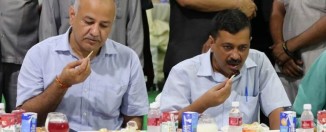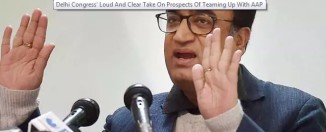Success of odd-even formula is of Delhi not Kejriwal
Just as one had despaired of the Arvind Kejriwal government ever offering us straightforward, old-fashioned governance without tantrums, and policy decisions without conspiracy theories, the city of Delhi surprised itself and its elected government to begin the new year with an extraordinary display of civic responsibility, maturity and self-regulation capacity.
Defying all predictions about how the harebrained, half-baked odd-even formula for regulating private car movement in the city would actually work out, everyone who dared to be the odd one out on the road discovered that there was a dramatic reduction in traffic volume. The movement was smooth and easy, the temperament remarkably “even”.
The jury is still out on whether this will have a significant impact on air quality and whether such a move can be sustained over a sufficiently long period before the innately junglee mentality of the Delhi driver reasserts its lawless ways. But the significance of the first day’s success goes far beyond what the Delhi government had set out to do.
As a means of checking air pollution, the odd-even formula is pure claptrap. It is a typically populist Kejriwal type of response to an extremely complex problem.
By offering instant gratification to the demand for action, here and now, it shows the government as being determined without having to do the thankless painstaking research required to unravel the complex interrelatedness of urban environmental issues.
This also means taking the easy way out without having to take politically inconvenient decisions that the dictates of green and smart governance demand.
If things go wrong, there is always the Delhi Police, the Lieutenant Governor and the home ministry to pin the blame on. Either way, whether the scheme succeeds or not, it brings a business bonanza for a key segment of the Aam Aadmi Party (AAP) constituency – the auto rickshaw driver community.
By way of governance as street theatre – Arvind Kejriwal’s major contribution to public life – one could not have asked for a better opportunity.
Yet, despite its obviously gimmicky character and despite the difficulties in its implementation, the response of the Delhi citizen to the scheme has been electrifying. It is important to understand the significance of this so that a correct appreciation of the development can help us change the ways in which we govern ourselves.
What is so special about this development? For one, this is probably one of the few occasions outside of a national emergency where voluntary compliance with a difficult order has been near total. The exercise of restraint on the part of both the enforcement authorities and the citizens, including the dreaded Delhi VIP, was exemplary.
There were fewer cars on the road. Everyone seemed better behaved, and occasionally, people even smiled at each other. This was something Delhi had not seen before.
How did this come about? Several reasons.
First, Delhi’s air quality and its palpable deterioration in the last few years is something everyone feels very strongly about. While there may be disagreement on exactly what has caused this and what can be done to check further deterioration, no one can question that something immediate, drastic and major has to be done.
The concern cuts across all segments, and unlike other causes promoted by the AAP, which are constituency-specific, this is a concern which brings widely different constituencies together.
Second, when a problem affects all people equally, and where people have a sense of participation in defining the problem itself, developing a consensus on how to tackle the problem becomes very easy, as long as people get a sense of the sincerity of intentions.
Willingness to try out something drastic and something which may otherwise have been treated as unfeasible is much higher.
Third, the welcome realisation in the government that implementing a scheme like this cannot rely either on belligerent postures and theatrical communication strategies. It does not mean spinning out fresh conspiracy theories but only by securing the mutuality of cooperation on the part of all stakeholders, including those like the Delhi Police, you may have been foaming at the mouth about.
But above all, this showed the wonders that can be achieved if citizens, rather than political leaders, or the officialdom, or the police are brought to the centre stage of the processes of governance on issues that matter to them.
This was a victory for communities and their ability to try and solve their own problems, facilitated by the government. It deserves to be celebrated.
Governance without governments? Any takers?




